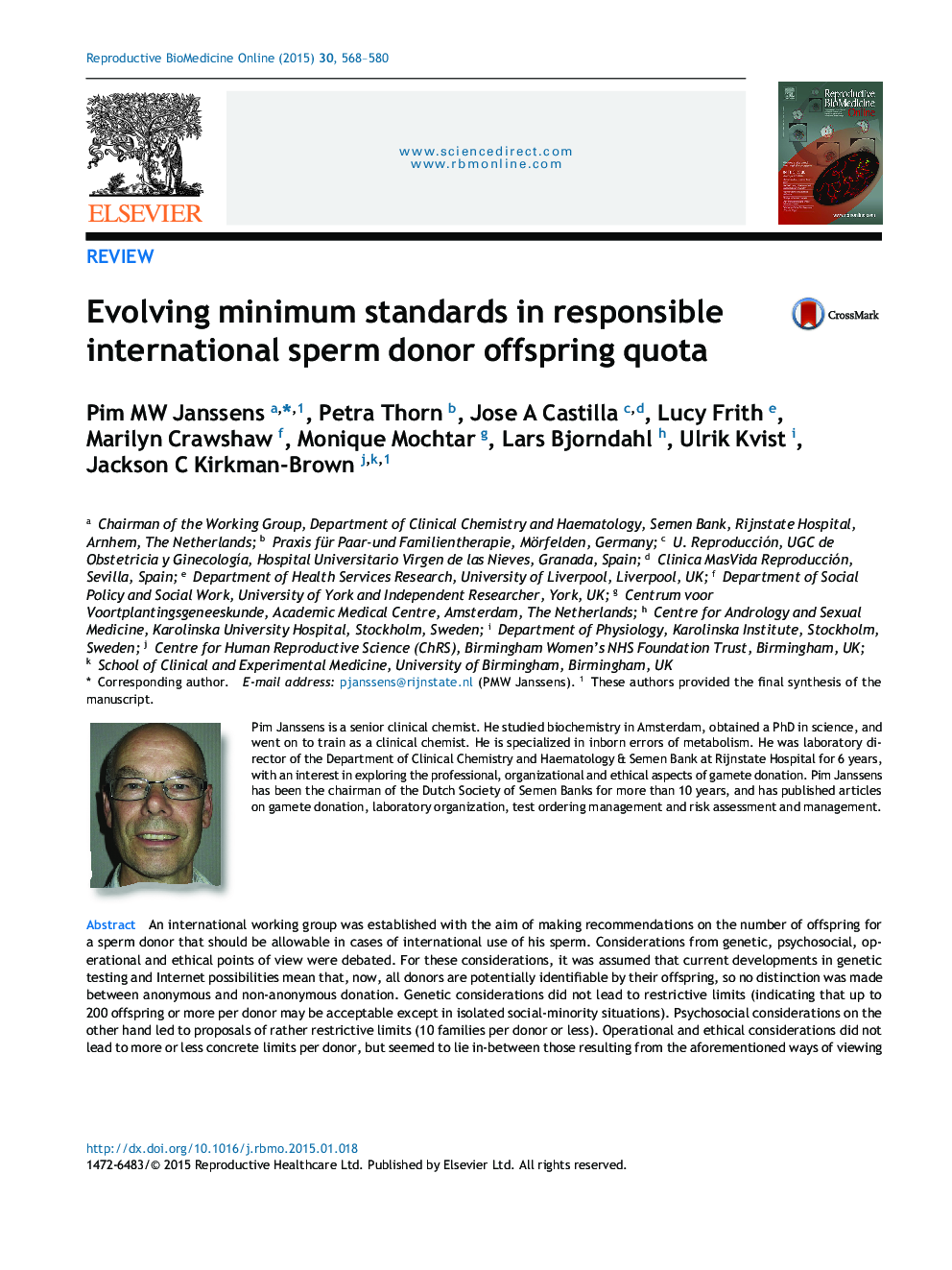| Article ID | Journal | Published Year | Pages | File Type |
|---|---|---|---|---|
| 3970060 | Reproductive BioMedicine Online | 2015 | 13 Pages |
An international working group was established with the aim of making recommendations on the number of offspring for a sperm donor that should be allowable in cases of international use of his sperm. Considerations from genetic, psychosocial, operational and ethical points of view were debated. For these considerations, it was assumed that current developments in genetic testing and Internet possibilities mean that, now, all donors are potentially identifiable by their offspring, so no distinction was made between anonymous and non-anonymous donation. Genetic considerations did not lead to restrictive limits (indicating that up to 200 offspring or more per donor may be acceptable except in isolated social-minority situations). Psychosocial considerations on the other hand led to proposals of rather restrictive limits (10 families per donor or less). Operational and ethical considerations did not lead to more or less concrete limits per donor, but seemed to lie in-between those resulting from the aforementioned ways of viewing the issue. In the end, no unifying agreed figure could be reached; however the consensus was that the number should never exceed 100 families. The conclusions of the group are summarized in three recommendations.
